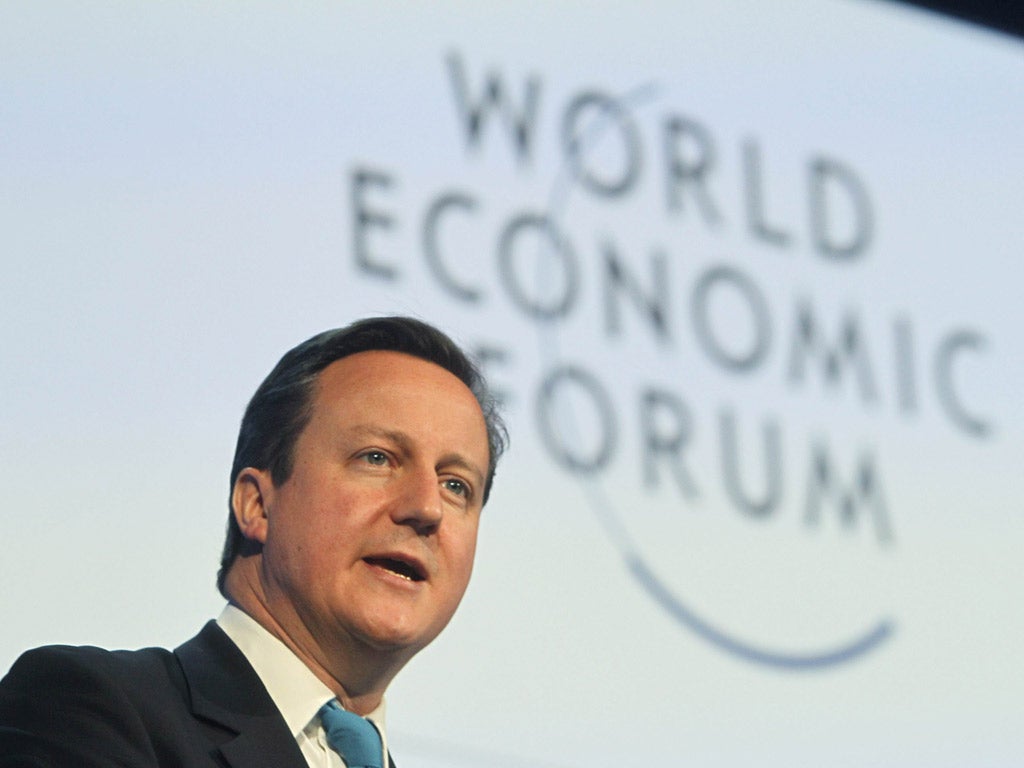Your support helps us to tell the story
From reproductive rights to climate change to Big Tech, The Independent is on the ground when the story is developing. Whether it's investigating the financials of Elon Musk's pro-Trump PAC or producing our latest documentary, 'The A Word', which shines a light on the American women fighting for reproductive rights, we know how important it is to parse out the facts from the messaging.
At such a critical moment in US history, we need reporters on the ground. Your donation allows us to keep sending journalists to speak to both sides of the story.
The Independent is trusted by Americans across the entire political spectrum. And unlike many other quality news outlets, we choose not to lock Americans out of our reporting and analysis with paywalls. We believe quality journalism should be available to everyone, paid for by those who can afford it.
Your support makes all the difference.David Cameron delivered a blistering message to European leaders, urging them to take bold action to sort out the eurozone debt crisis, and describing their proposals for a financial transaction tax as "madness".
In a message aimed squarely at the German Chancellor, Angela Merkel, Mr Cameron warned: "Tinkering here and there and hoping we will drift to a solution simply won't cut it any more. This is a time for boldness not caution."
The Prime Minister, speaking at the World Economic Forum in Davos, conceded there were some signs of stabilisation of European bond markets since the European Central Bank injected almost half a trillion euros into the Continent's banking system last month. But he said uncertainty about the single currency was undermining the global economy.
Mr Cameron pointed out that the borrowing costs of nations on the periphery of Europe were still dangerously high.
"A year ago, bond rates were 5 per cent in Spain, nearly 5 per cent in Italy and more than 7 per cent in Portugal. Today, they are still 5 per cent in Spain, up to 6 per cent in Italy and 14 per cent in Portugal," he said.
The Prime Minister contrasted European leaders' slow movement through the eurozone crisis with his government's radical deficit-reduction plan, which was outlined in the emergency Budget in June 2010. "Britain has shown it is possible to earn credibility and get ahead of the markets," he said.
Mr Cameron's rejection of the EU's proposed financial transaction tax, advocated by Chancellor Merkel and the French President, Nicolas Sarkozy, was his strongest yet. The Prime Minister said the European Commission's own analysis showed that such a levy would cost 500,000 jobs across Europe.

Join our commenting forum
Join thought-provoking conversations, follow other Independent readers and see their replies
0Comments